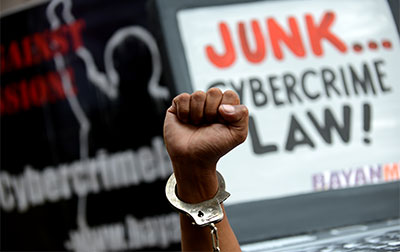On Tuesday, the Philippines Supreme Court issued a temporary restraining order stopping the government from enforcing the Cybercrime Prevention Act of 2012 which President Benigno Aquino III signed into law last month. The court, in full session, ordered that oral arguments for and against will start January 15. And it gave the government 10 days to respond to the many petitioners seeking to declare the law unconstitutional.
As we wrote last week in “Online in Philippines? Check out #notocybercrimelaw,” the law doubled maximum penalties for libel from six years to 12 – and comments posted online and judged libelous would be criminal offenses. This would have a chilling effect, to say the least.
But don’t think this is a finished battle. President Aquino supported the law, then publicly backed away from the increased penalties even though he signed knowing full well what was on the page. It might be wise to launch an Anti-Cybercrime Prevention Act of 2013 campaign.
Meanwhile, my Best Anti-Cybercrime Law of 2012 Heightened Rhetoric Award goes to the National Union of Journalists of the Philippines, whose members have a deeply vested interest in maintaining as much free speech in the country as possible. They’re usually the prime targets of politicians out to silence critics through the legal harassment that prevailing laws have allowed. The NUJP said in its petition calling for repeal that the Cybercrime Act would “set back decades of struggle against the darkness of ‘constitutional dictatorship’ and replace it with ‘cyber authoritarianism.'” You might recall that former President-cum-dictator Ferdinand Marcos described his martial law government as “constitutional authoritarianism.” No one is claiming this misstep was a march back toward that era, but it certainly wasn’t a fast forward step away from it, either.
